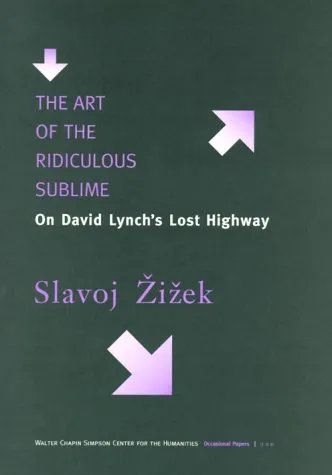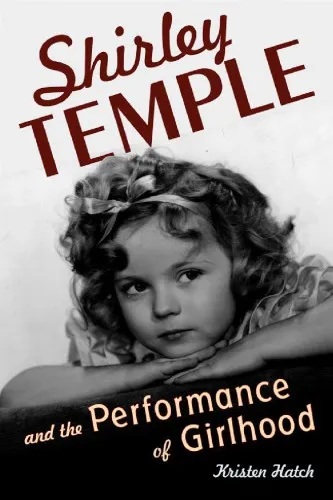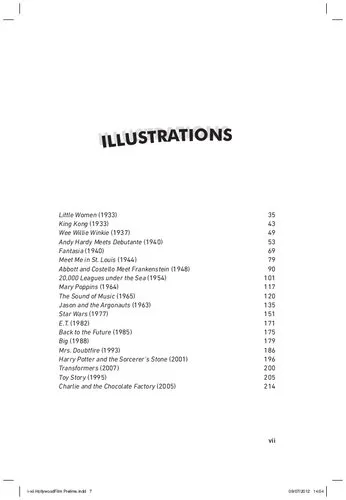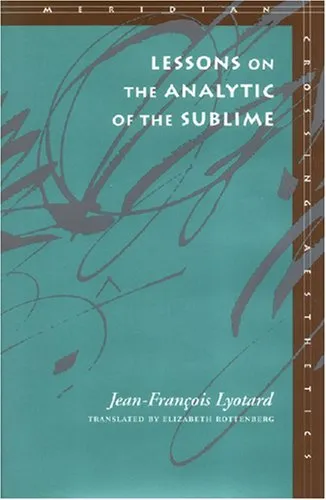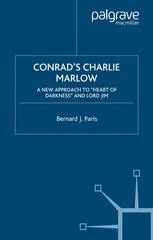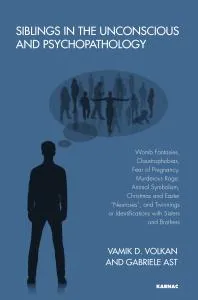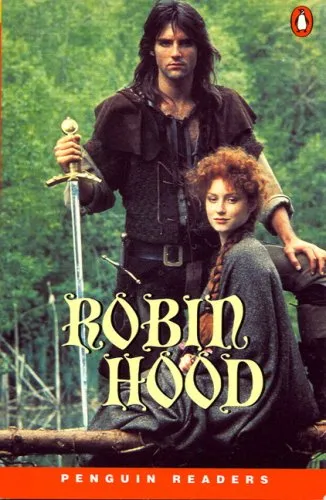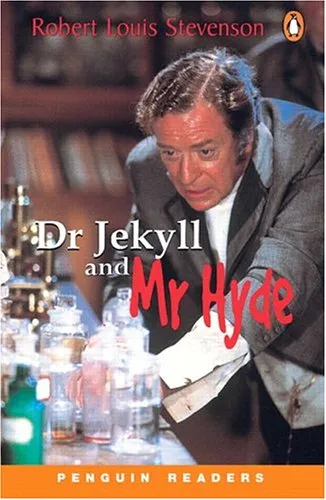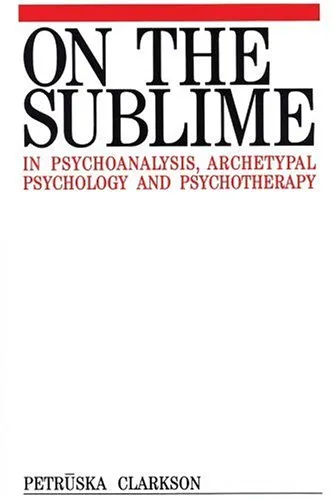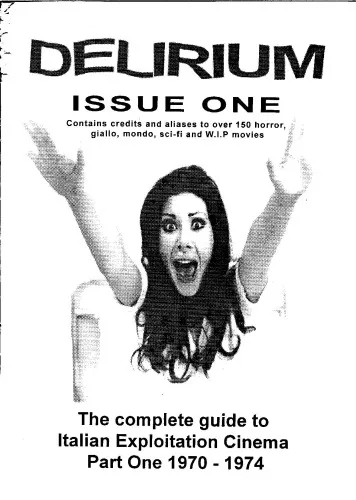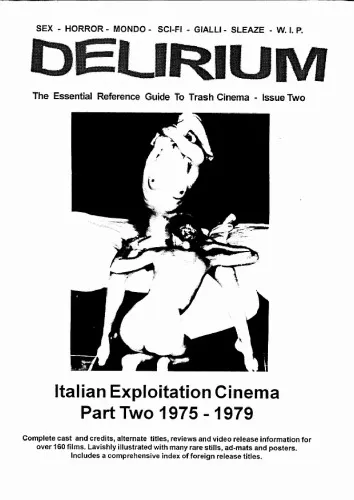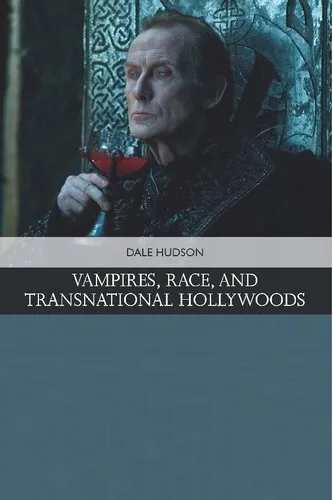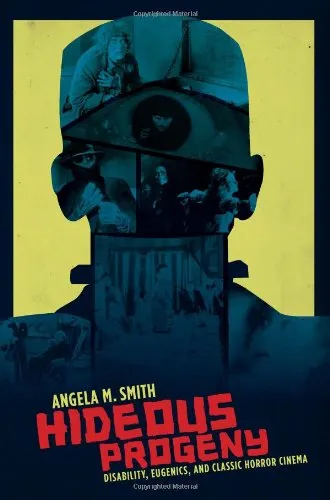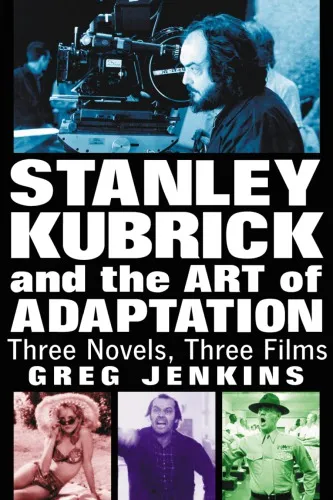The Art of the Ridiculous Sublime: On David Lynch's Lost Highway
4.0
Reviews from our users

You Can Ask your questions from this book's AI after Login
Each download or ask from book AI costs 2 points. To earn more free points, please visit the Points Guide Page and complete some valuable actions.Related Refrences:
Introduction
In "The Art of the Ridiculous Sublime: On David Lynch's Lost Highway," Slavoj Žižek embarks on a daring exploration of one of David Lynch’s most enigmatic films. This book serves as an intellectual dissection of Lynch's work, revealing the philosophical and psychoanalytic underpinnings that make "Lost Highway" a profound cinematic experience. Utilizing a unique blend of Lacanian psychoanalysis and film theory, Žižek explicates the complex narrative and aesthetics of the film, inviting readers to dive deeper into its intriguing web of meaning.
Detailed Summary of the Book
Slavoj Žižek’s analysis begins with the notion of the "ridiculous sublime," a concept that captures the uncanny interplay between the absurd and the transcendental found in "Lost Highway." He positions the film within the larger frame of Lynch's oeuvre, illustrating how it deviates from yet complements Lynch’s signature style. Žižek delves into the labyrinthine plot, where identity, reality, and temporality become unstable and fluid.
The book is a methodical exploration of the film's narrative structure, focusing on its dualistic nature. Žižek discusses the characters’ dissociation and transformation, dissecting how Lynch portrays the disturbance of time and being. Through a Lacanian lens, he explains the notion of "excess" as central to Lynch’s cinematic storytelling, emphasizing how this excess invites audiences to confront the limitations of their understanding.
Žižek also examines the film's aesthetic components, including its use of sound and vision to evoke a sense of dislocation. He argues that Lynch’s work goes beyond typical cinematic boundaries, creating new forms of spectatorship that challenge the viewer’s passive role. This meticulous dissection helps readers gain a deeper appreciation for the intricacies and provocations of “Lost Highway.”
Key Takeaways
- The Role of the Unconscious: Žižek highlights how Lynch uses film as a means to visualize the unconscious, operating through the themes of identity and transformation.
- Philosophical Underpinnings: Incorporating Lacanian psychoanalysis, the book reveals how "Lost Highway" is a complex interplay of fantasy and reality, pushing the boundaries of traditional narrative forms.
- Subversion of Norms: Žižek points out the subversive elements within the film that defy conventional expectations and invite a reevaluation of cinema as art.
- Aesthetic Innovation: The book examines Lynch’s unique approach to visual and auditory storytelling, which plays a crucial role in delivering the film's unsettling atmosphere.
Famous Quotes from the Book
"Lynch's universe is not one of darkness, it is one of excessively bright, blinding clarity." – Slavoj Žižek
"The real dimension of the uncanny... is that of the ridiculous sublime." – Slavoj Žižek
Why This Book Matters
This book is significant because it offers an in-depth theoretical framework for understanding "Lost Highway" beyond its surface-level bewilderment. For students of film, philosophy, and psychoanalysis, it provides a rich source of discourse into the profound, often unsettling, questions posed by Lynch’s work. Žižek’s insights transform the filmic experience into a philosophical odyssey, making the seemingly inaccessible accessible. His analysis not only deepens the appreciation of Lynch's film but also serves as a bridge connecting cinematic art with theoretical acumen, demonstrating the essential role films play in engaging with complex philosophical ideas.
Free Direct Download
You Can Download this book after Login
Accessing books through legal platforms and public libraries not only supports the rights of authors and publishers but also contributes to the sustainability of reading culture. Before downloading, please take a moment to consider these options.
Find this book on other platforms:
WorldCat helps you find books in libraries worldwide.
See ratings, reviews, and discussions on Goodreads.
Find and buy rare or used books on AbeBooks.
1452
بازدید4.0
امتیاز0
نظر98%
رضایتReviews:
4.0
Based on 0 users review
Questions & Answers
Ask questions about this book or help others by answering
No questions yet. Be the first to ask!
